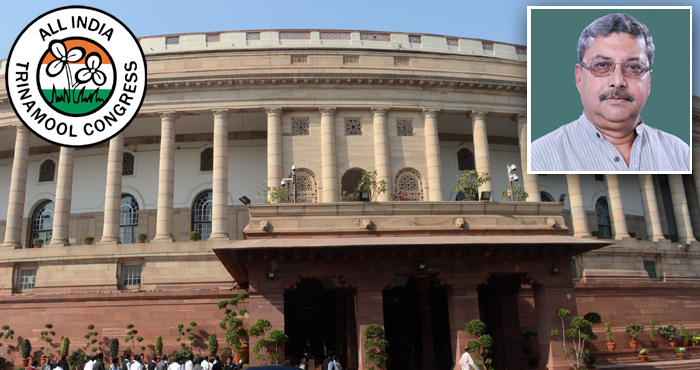January 8, 2019
Kalyan Banerjee speaks on The DNA Technology (Use and Application) Regulation Bill, 2018

FULL TRANSCRIPT
Madam, I am conveying my thanks for giving me the chance to speak on this Bill. Firstly, I will say that for a long period of time there was an uncovered area regarding the collection of DNA. An unsecured situation still exists in this area. In our criminal justice system, or any other system, in case of any interrogation by the police or any other system anywhere, the feelings of the people were insecure. Now by bringing this Bill this position has been settled.
According to me, this Bill should have been brought a long time back. This Bill is very good for the criminal justice system and the civil justice system, and in general for the people of this country. There should not be any conception in the minds of any citizen of India for any purpose that one is insecure. This feeling of insecurity has to be eradicated, which this Bill has done. The Bill has all the necessary details like properly preserving the DNA in laboratories, regulating laboratories, etc.
I have only two or three things to say. From my end I will seek a few clarifications. One is about Section 21 (i). This is a good provision. Till now, if someone is arrested based on some allegations, his DNA is collected if needed. Now under Section 21 (i), a provision has been made that no bodily substance shall be taken from a person who is arrested for an offence other than the specified offences, unless consent is given in writing for the act. This provision will secure everyone. The fear that exists in the mind of a person has been eradicated by this provision in Section 21 (i). As explanation, you have given details of the specified offences. Sub-section (ii) clarifies that if the investigating officer wants the DNA and the person concerned does not give consent, an application has to be made to the magistrate who will decide. There is also a chance to go to the judicial forum.
I have one question. If any investigating agency or anybody is collecting the DNA under the scope of Section 21 or at the investigating stage, even when the person is in police custody, what is the safeguard? I hope that this Bill checks up to that portion. Since your object is under Section 21, that no DNA should be taken without the consent, if that is the object, if some investigating agency or any other agency abuses that power, what steps should be taken under this law against that person? If this is wrongly taken, forcibly taken, then your object under Section 21, Sub-section 1, will be infructuous. This is one area I’m thinking about.
Secondly, why the Motor Vehicles Act has been brought under part B. I’ve no difficulties in Immoral Traffic Prevention Acts etc. So far civil dispute is concerned, you have given issues relating to immigration or emigration, issues relating to establishment of individual identity.
I have another question. In a criminal case, unless consent in writing is given, nothing can be taken. If the investigating agency wants it, it has to make an application but in civil dispute, how will it be covered? Therefore immigration authority will have the excessive power to collect the DNA, which is not your objective. Your objective is only with the consent, except a case where death sentence is given. That is a specified offence. Therefore in a civil dispute case, like illegal immigration – according to any state or any governments it comes within the purview of civil dispute – then what is the protection? How can the DNA be taken?
Similarly another issue is relating to establishment of individual identity. In respect of the civil dispute, the cases which we have given, I want a clarification that who will decide? Therefore this part needs to be answered.
Then in the other cases, like in a case of medical negligence, how the DNA is obtained? Medical negligence means negligence on the part of a doctor. It can be extended to the disease. Then how does the DNA come there? In case of unidentified human remains, and abandoned or disputed children-related issues, so far children’s DNA is concerned, until he attains 18 years of age can you collect DNA? Does it not violate another Act, which is Child Protection Rights Act? Kindly consider that part and clarify this. Otherwise this Bill is laudable, with so many preventive steps that have been taken. People will feel secured since things will be done properly.
With this I conclude. Since I am from the legal background, I thought about it and how the rights of people should be protected; and it has been laid today. I will say this much.
Thank you.
